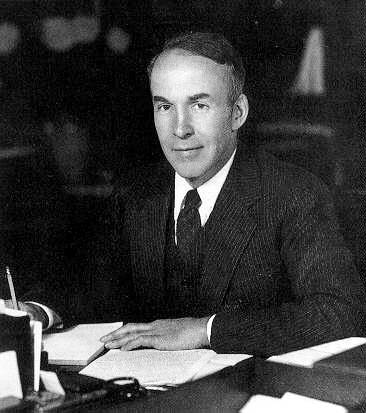For Kenneth MacLeish, 1894-1918
Ambassador Puser the ambassador
Reminds himself in French, felicitous tongue,
What these (young men no longer) lie here for
In rows that once, and somewhere else, were young…
All night in Brussels the wind had tugged at my door:
I had heard the wind at my door and the trees strung
Taut, and to me who had never been before
In that country it was a strange wind, blowing
Steadily, stiffening the walls, the floor,
The roof of my room. I had not slept for knowing
He too, dead, was a stranger in that land
And felt beneath the earth in the wind’s flowing
A tightening of roots and would not understand,
Remembering lake winds in Illinois,
That strange wind. I had felt his bones in the sand
Listening.
...Reflects that these enjoy
Their country’s gratitude, that deep repose,
That peace no pain can break, no hurt destroy,
That rest, that sleep…
At Ghent the wind rose.
There was a smell of rain and a heavy drag
Of wind in the hedges but not as the wind blows
Over fresh water when the waves lag
Foaming and the willows huddle and it will rain:
I felt him waiting.
...Indicates the flag
Which (may he say) enisles in Flanders plain
This little field these happy, happy dead
Have made America…
In the ripe grain
The wind coiled glistening, darted, fled,
Dragging its heavy body: at Waereghem
The wind coiled in the grass above his head:
Waiting—listening…
...Dedicates to them
This earth their bones have hallowed, this last gift
A grateful country…
Under the dry grass stem
The words are blurred, are thickened, the words sift
Confused by the rasp of the wind, by the thin grating
Of ants under the grass, the minute shift
And tumble of dusty sand separating
From dusty sand. The roots of the grass strain,
Tighten, the earth is rigid, waits—he is waiting—
And suddenly, and all once, the rain!
Archibald MacLeish was an American poet, journalist, public servant, and professor. He attended Yale University and enlisted for action in World War I. MacLeish later attended Harvard Law School and practiced law in Boston for a time before moving to Paris for several years to devote himself fully to poetry. He won the Pulitzer prize three times: for his epic poem Conquistador (1932), his Collected Poems (1952), and his verse play J.B. based on the Book of Job, which was a success on Broadway in 1957. In addition to writing poetry, MacLeish wrote for Henry Luce's magazine Fortune, and, for five years, served as Librarian of Congress at the request of President Franklin Delano Roosevelt. He held multiple other positions in the Roosevelt administration, including Assistant Secretary of State for Cultural Affairs. From 1949 to 1962, MacLeish was Boylston Professor of Rhetoric and Oratory at Harvard University.




No Comments